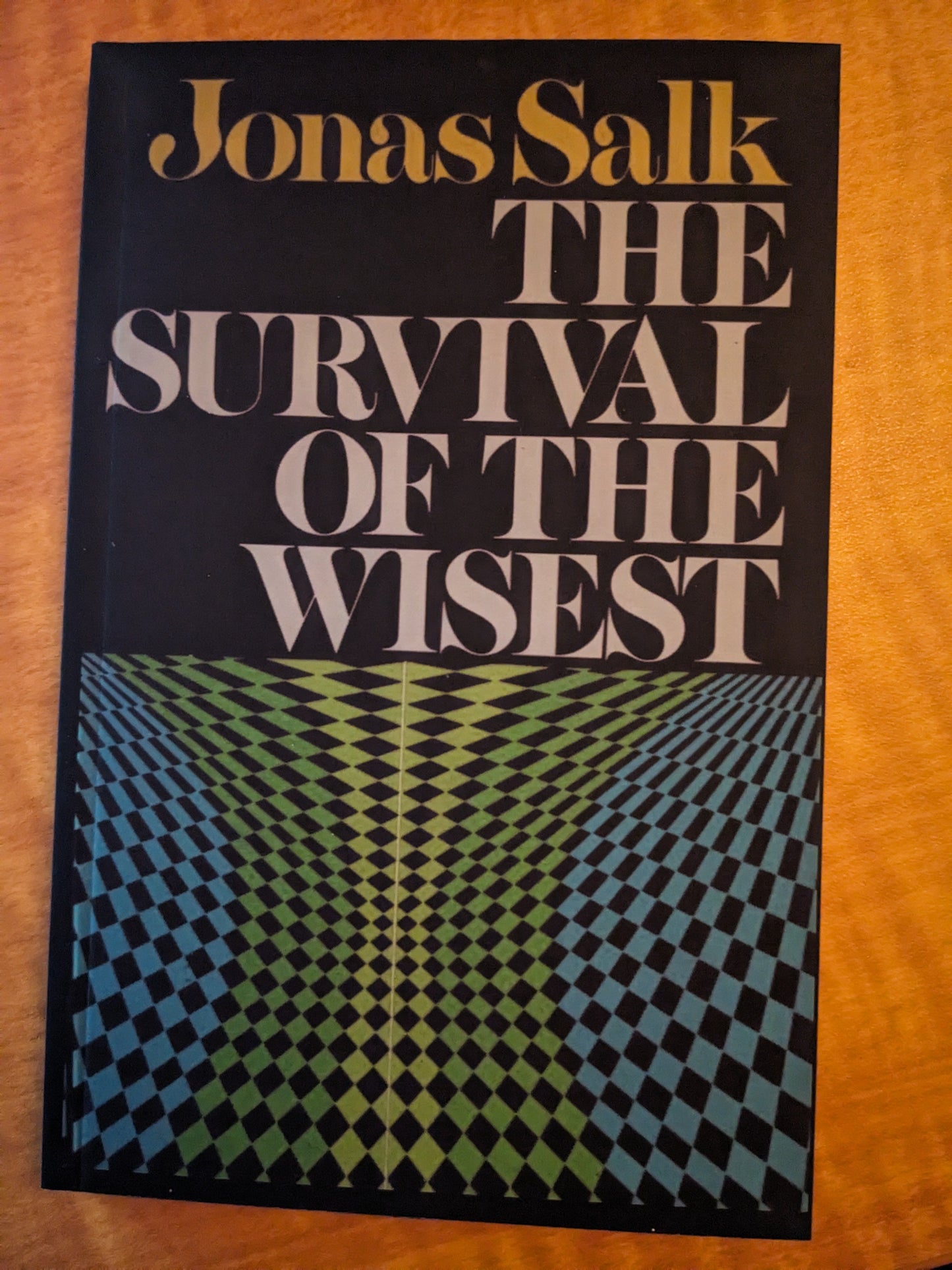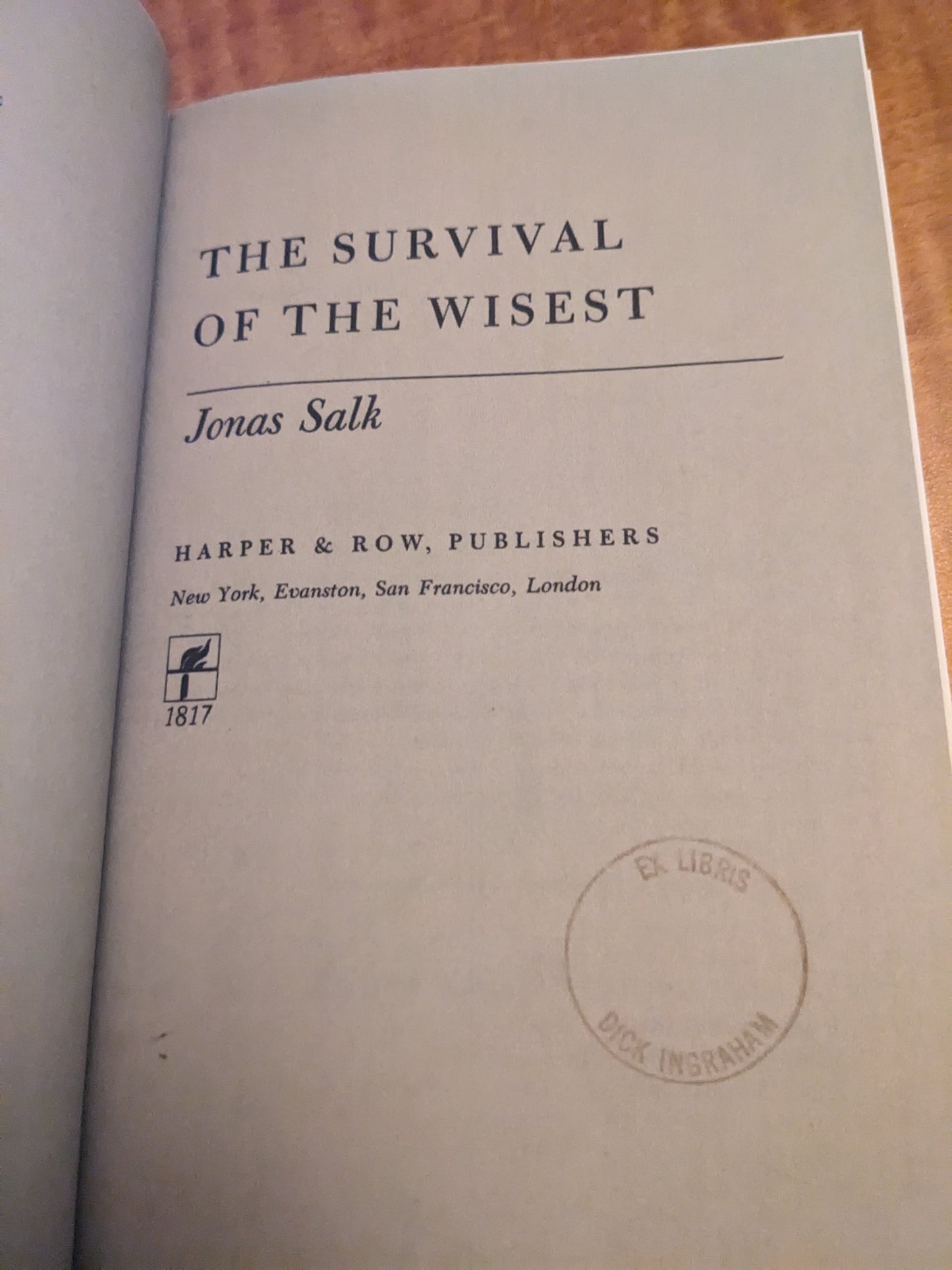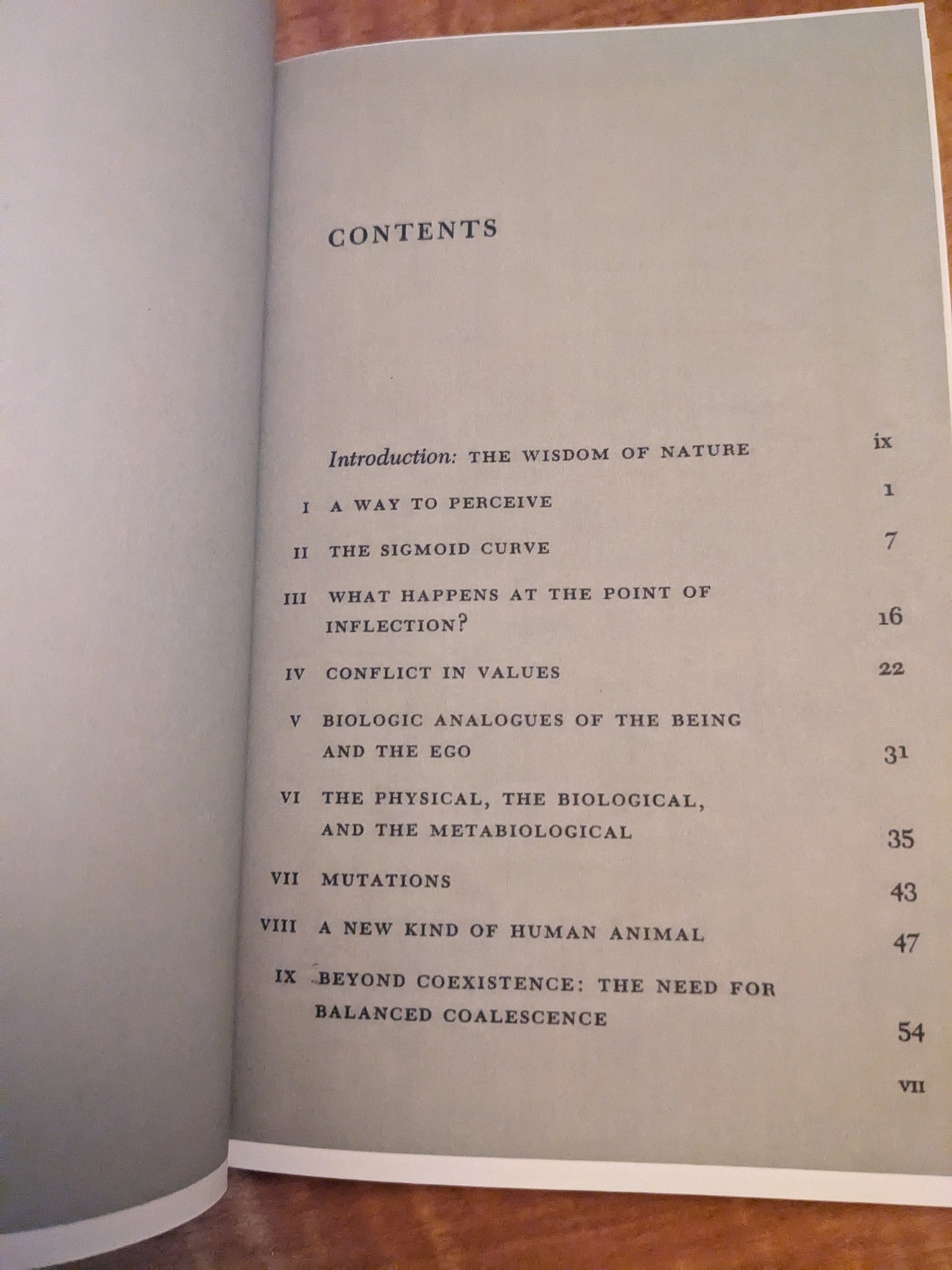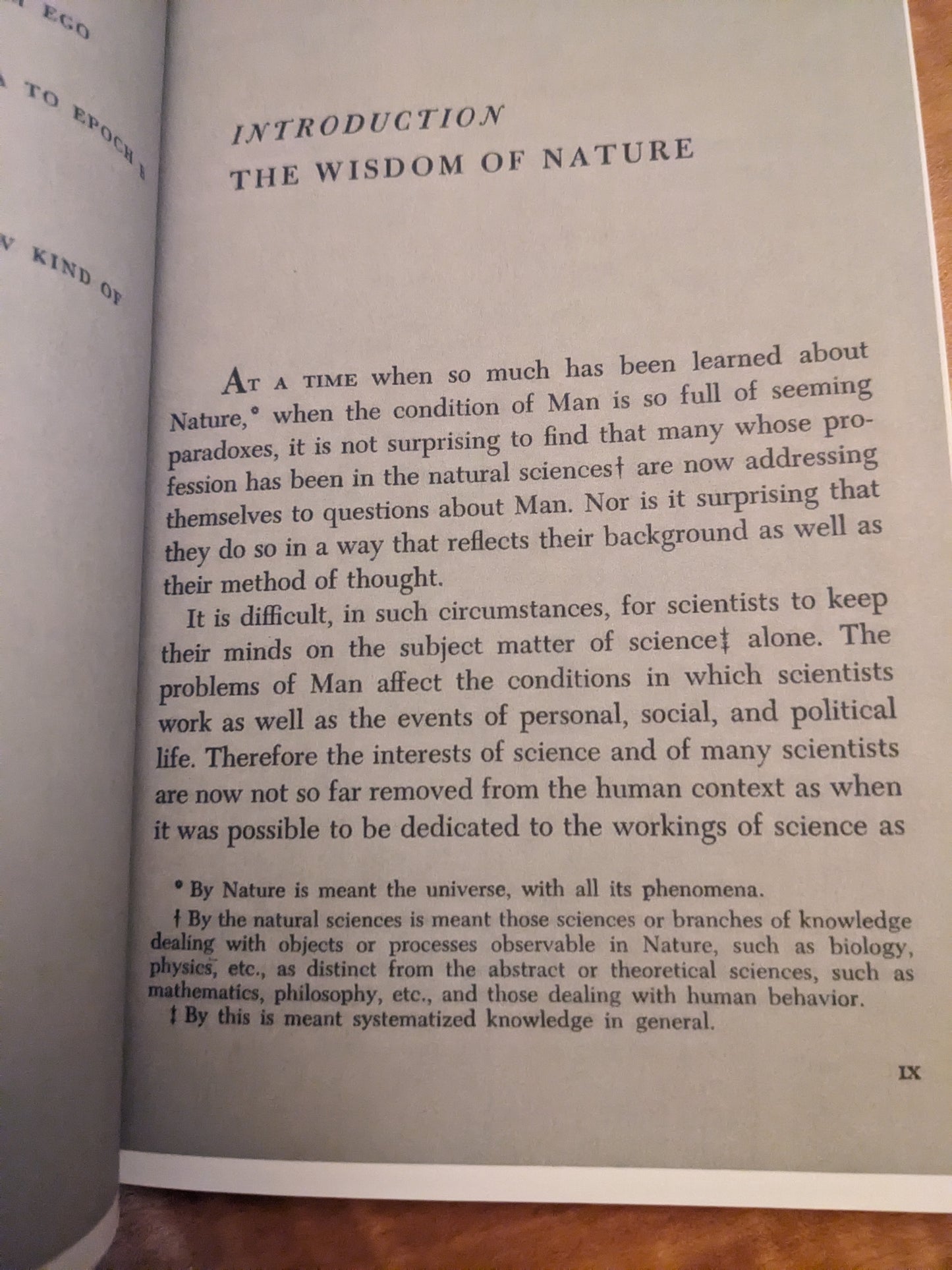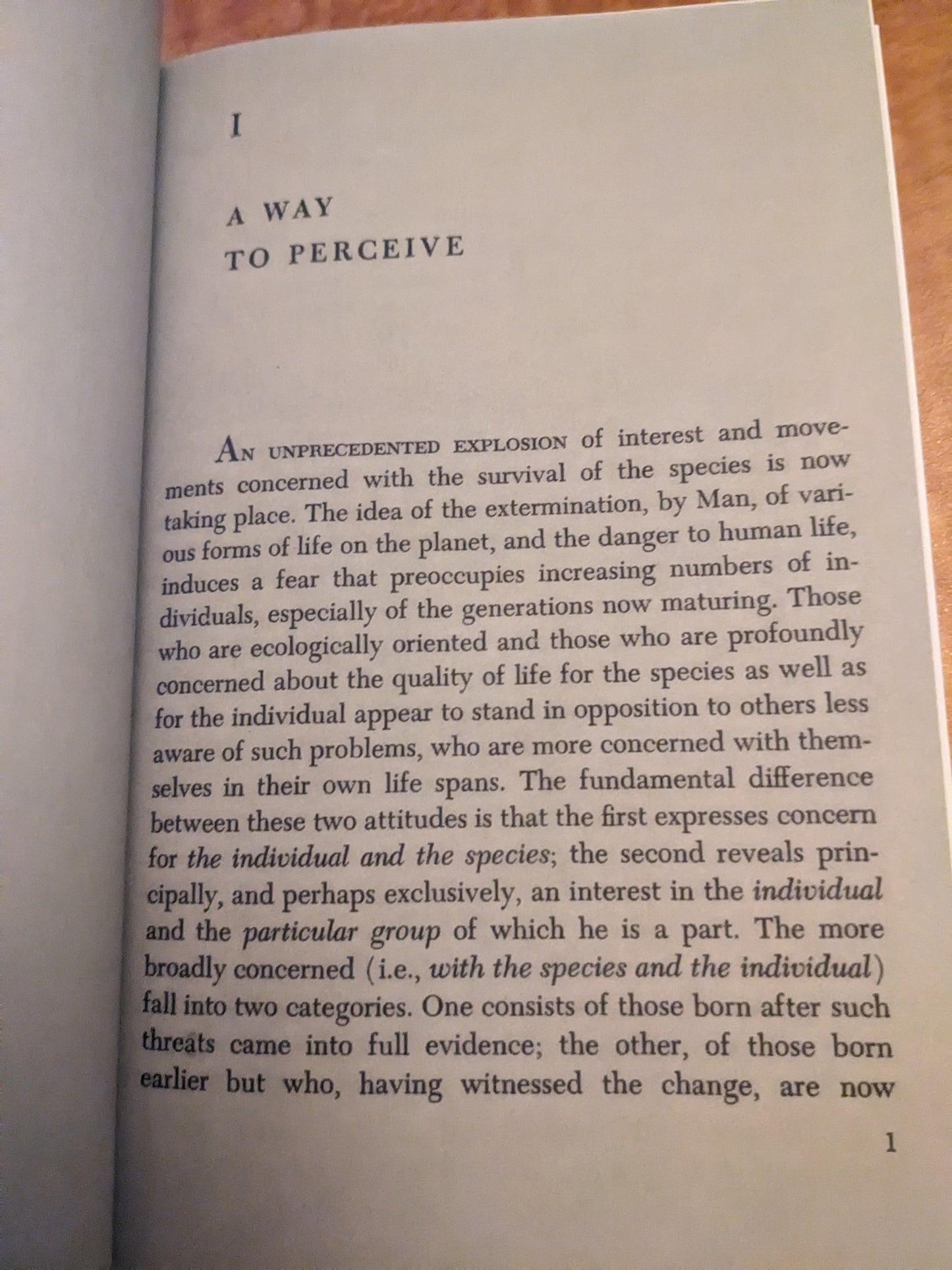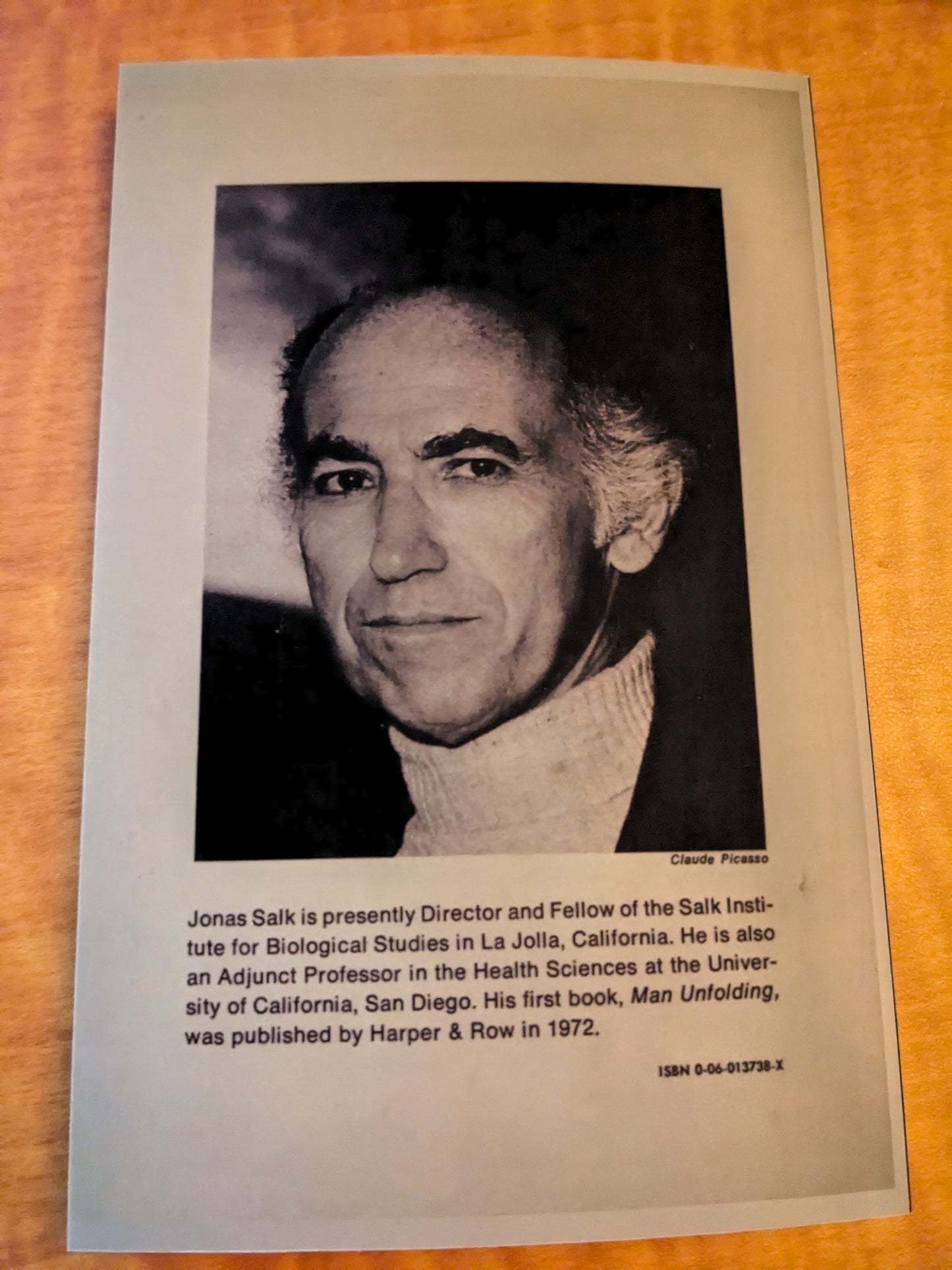Obscure Books
The Survival of the Wisest by Jonas Salk
The Survival of the Wisest by Jonas Salk
Couldn't load pickup availability
1973 edition printed in 2024. 5.5" x 8.5"
This is a facsimile printing of an extremely difficult book to find.
Please note the shading on the pages; this was impossible to remove, but the book is 100% readable and legible.
From an Amazon review:
This hard-to-get out-of-print book presents some ideas which are of profound importance for the future of humanity, but largely ignored and also rejected. Main examples include:
(1) Clear recognition that humanity is moving from one evolutionary curve to a radically different one (chapters III and XV) – a fundamental truth nominally accepted by many, but without drawing the necessary radical conclusions, as in part recognized by the author.
(2) Salk emphasized that “an epochal change is being experiences” (p. 28) and novel values are needed to fit the transition from one evolutionary curve to an inverted one (p. 21). As he puts it “old laws, rules, or values are no longer …adequate… values…needs to be developed and accepted as more appropriate to the presently changing circumstances (p. 47). This is a crucial insights missed by the many who believe that their values are intrinsically and perpetually “true,” ignoring the glaring need for a lot of transvaluation, as Nietzsche called it, to help humanity to survive the historic quantum-leap produced largely by science and technology.
(3) The book correctly emphasized the necessity to think in terms of evolutionary processes, which Salk later defined as “biophilosophy,” including application of a "biological, evolutionary point of view to philosophical, cultural, social and psychological problems."
(4) It clearly states what most humans do not comprehend and nearly all political leaders and other future-shapers are ignorant about: “The choices which Man makes from the alternatives available to him will profoundly influence his own evolutionary destiny” (p. 28).
(5) Salk emphasized that “wisdom will be required for which a balanced creative center for judgment is needed” (p. 29), an insight overlapping with my interests in improving the quality of the few future-shapers who impact on the fate of generations to come.
Crucial is Salk’s conception of the wisest: “…by wisest we mean those who comprehend the survival-evolutionary process…and who make choices such as enhance the possibility of existence rather than nonexistence, recognizing evolution as an essential and inexorable continuum of growth and development.” (p. 53). For sure the vast majority of political leaders are sleepwalking into a future which they do not understand – the opposite of being “wise.” As the author puts it “…few are innately or by experience equipped to take the initiative in providing…leadership toward the necessary goal. Such a goal is many leagues beyond those individually envisaged by most leaders” (pp. 84-85).
I cannot but admire the book for following Plato and Confucian thinkers, who recommended philosopher-rulers and sage-rulers respectively. It states bravely a counter-conventional and often taboo truth: “…if the quality of human life is to improve, the processes of selection…will have to choose the wisest for positions of influence and power” (p.71, emphasis added). Indeed, humanity need deeply “wise” rulers, instead of “smart” and sometimes “clever” ones – but, with all too few exceptions, far from “wise”.
However, together with “wise” insights the book suffers from many weaknesses: It ignores the possibility that the evolutionary destiny of humanity may be to procreate a superior entity, say spiritual machines, also at the cost of the extinction of the human species. The necessity of catastrophes in order to shock humanity to make necessary radical changes is also ignored. Instead the author naively trusts “education” as an effective tool to change humanity; and is wrongly optimistic about “More individuals are becoming aware of their responsibility for the welfare of their species and life on the planet” (p. 91).
Furthermore, reliance on biological analogues and some of the terminology hinders understanding parts of the argumentation by readers ignorant about basics of life sciences. And some of the quasi-psychological argumentation is far from convincing.
Still, this is a classic on the ongoing crises of humanity. Readers seriously thinking on the future of humanity will read it with benefit.
Professor Yehezkel Dror
The Hebrew University of Jerusalem
Share
